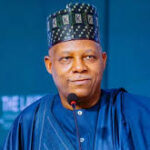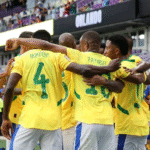North Korea will send thousands of workers and military personnel to Russia’s war-affected Kursk region as part of what Moscow calls “fraternal assistance,” according to reports from Russian state media.
The announcement was made by Russian Security Council Secretary Sergei Shoigu on Wednesday, following his meeting with North Korean leader Kim Jong Un in Pyongyang. Shoigu said the deployment would include a division of construction workers, two military brigades totaling 5,000 personnel, and around 1,000 deminers to aid in reconstruction efforts in western Russia, where heavy fighting has occurred in recent months.
“This is a kind of fraternal assistance from the Korean people and leader Kim Jong Un to our country,” Shoigu said, as quoted by TASS and AFP.
The move has drawn immediate condemnation from South Korea and Japan. Seoul’s foreign ministry voiced “grave concerns,” accusing both countries of “continuing illegal cooperation.” Japan’s Chief Cabinet Secretary Yoshimasa Hayashi also warned the arrangement could worsen the Ukraine conflict and destabilize regional security.
The deployment comes amid growing evidence of deepening military ties between Moscow and Pyongyang. Reports suggest North Korean soldiers have already been supporting Russian forces in Ukraine. Western sources earlier this year told the BBC that over 1,000 North Korean troops had been killed in just three months, while South Korean intelligence now estimates total North Korean casualties at around 4,700, including 600 deaths.
Shoigu’s talks with Kim also reportedly addressed broader long-term cooperation, though specific details were not disclosed. Analysts believe Pyongyang may receive advanced Russian military technology in return for its support.
The U.S. and its allies have criticized the deployment, citing violations of international law. A 2017 United Nations resolution prohibits the use of North Korean labor abroad, citing concerns that such arrangements fund Kim’s regime.
Despite mounting international pressure, Russia and North Korea have strengthened their ties. In November 2024, both countries signed a mutual defense pact pledging support in the event of aggression. Kim described the agreement as elevating their alliance to “a new high level.”
Russia has previously claimed full control of the Kursk region, though Ukrainian authorities continue to dispute that claim.
Nzubechukwu Eze









